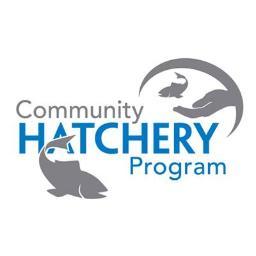Communities Raising Fish
Volunteer informationHome »
Community based fish culture has a rich history in Ontario. In the early 1980’s, the Ontario Ministry of Natural Resources (MNR) launched a community stewardship program, the Community Fisheries Involvement Program (CFIP), which supported the development of community based fish culture in Ontario and has provided the foundation for millions of public fish to be stocked into public waters. Community-based fish culture is built on a foundation of passion, dedication and genuine concern for resource management. Whether volunteers are raising Walleye, Lake Trout or Chinook Salmon, their motivations are the same; they all want to conserve local fisheries for future generations to enjoy. Each year hundreds of community hatchery volunteers donate thousands of hours raising and stocking fish.
Community hatcheries not only raise public fish for public waters, they get communities engaged in fisheries management and other conservation issues. Many community hatcheries double as community learning centers where they educate youth and the general public about fish ecology and fisheries conservation.
Roughly 50 community hatcheries operate throughout the Province each year. Hatcheries vary in size and complexity. Some hatcheries are small, and are designed to produce young fish for stocking. Other facilities are larger, with more advanced technology, allowing them to produce greater numbers of fish and more advanced life stages. For more information of the location of community hatcheries and details about their operations, please explore the Google Map below.
Matt Burley
Community Hatchery Program Coordinator
Ontario Federation of Anglers and Hunters
PO Box 2800
4601 Guthrie Drive
Peterborough, ON K9J 8L5
Phone: 705-748-6324 Ext. 247
Fax: 705-748-9577
E-mail: matt_burley@ofah.org
Want to volunteer?
Use the map below to locate a hatchery near you (click on the fish icon for hatchery details)
Note: These are just relative locations of each hatchery. To obtain actual locations please contact community hatcheries directly.
If the contact information is incomplete for any hatchery that you would like to contact, please contact the Community Hatchery Program Coordinator.
